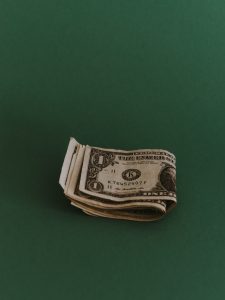Forex trading, also known as foreign exchange trading, is a process of buying and selling currencies to make a profit. It is the largest financial market in the world and is accessible to anyone with an internet connection. South Africa is a growing market in the forex trading industry, and this article will explain how forex trading works in South Africa.
Regulations
Forex trading in South Africa is regulated by the Financial Sector Conduct Authority (FSCA). The FSCA is responsible for ensuring that forex brokers are operating within the guidelines provided by the regulatory body. The FSCA is also responsible for protecting investors from fraudulent activities by ensuring that forex brokers are complying with the regulations set forth by the regulatory body.
Forex Brokers
Forex brokers are the intermediaries between the forex market and the traders. They provide traders with the necessary software and tools to trade in the forex market. Forex brokers make their money by charging traders a commission or by marking up the spread, which is the difference between the bid and ask prices of a currency pair.
Forex brokers in South Africa are required to be licensed by the FSCA. There are a few reputable forex brokers in South Africa, such as IG, Forex.com, and Oanda, among others. Before choosing a forex broker, traders should do their research to ensure that the broker is licensed and regulated by the FSCA.
Currency Pairs
Forex trading involves buying and selling currency pairs. A currency pair is the exchange rate between two currencies. For example, the EUR/USD currency pair represents the exchange rate between the euro and the US dollar. The first currency in the currency pair is called the base currency, and the second currency is called the quote currency.
When trading forex, traders are speculating on the price movement of the currency pair. If a trader believes that the base currency will appreciate against the quote currency, they will buy the currency pair. If a trader believes that the base currency will depreciate against the quote currency, they will sell the currency pair.
Leverage
Leverage is a tool that allows traders to trade with more money than they have in their account. It is a double-edged sword that can amplify profits or losses. In South Africa, forex brokers offer leverage of up to 500:1. This means that a trader can trade with up to 500 times their account balance.
For example, if a trader has a $1,000 account balance and uses 500:1 leverage, they can trade with up to $500,000. While leverage can increase profits, it can also increase losses. Traders should use leverage with caution and only risk what they can afford to lose.
Risk Management
Risk management is an essential aspect of forex trading in South Africa. Traders should have a plan in place to manage their risk, such as using stop-loss orders, setting a maximum loss per trade, and having a maximum drawdown limit. Traders should also have a trading plan that includes their entry and exit points, as well as their profit targets.
Conclusion
Forex trading in South Africa is a growing industry that offers opportunities for traders to make a profit. Forex brokers are regulated by the FSCA, and traders should do their research before choosing a forex broker. Forex trading involves buying and selling currency pairs, and traders should use leverage with caution. Risk management is an essential aspect of forex trading in South Africa, and traders should have a plan in place to manage their risk.






